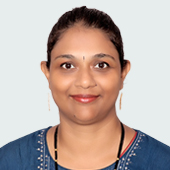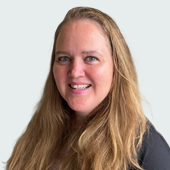Positively Purple 2024:
Bringing disability inclusion from the margins to mainstream
Welcome! Or am I?
At Atos, we are celebrating International Day of Persons with Disabilities (IDPWD) on December 3rd, 2024. This is a special day to celebrate disability inclusion and the achievements and contributions of people with disabilities. We also stand in support of the #PositivelyPurple movement— which inspires companies to build workplaces that are inclusive and accessible to people of all abilities.
In today’s rapidly evolving workplace the theme of inclusion has recently shifted from being a mere checkbox to a fundamental pillar of organizational success. We must move diversity discussions from the margins to make inclusion a mainstream practice. At Atos, we are already off to a great start in creating accessible environments for everyone in the workplace. IDPWD is the best time to look back on our work in the last year in furthering the accessibility and disability inclusion agenda and look forward to the opportunities that lie ahead.
Who we are
As co-chairs for disability inclusion, for several years we (Jacobien and Sarika) have been a part of various initiatives, events and Employee Resource Groups (ERGs) at Atos. By working closely with the ERGs, we have witnessed first-hand how diversity and inclusion can bring about innovation and performance.
Why disability inclusion matters
Jacobien:
For me, people are like pieces of a puzzle. We all have something remarkable to bring, and together, we are more than our individual parts.
You may be surprised to learn that one in seven people has a disability. Look around you and realize how many people that actually applies to. Although it may not be immediately visible, disability impacts not just an individual, but those around them as well.
In my experience, when people feel comfortable talking about their disabilities, they start to feel a sense of belonging — that it‘s OK to be the way they are and to be at peace with their situation. When they no longer feel the need to hide, they start to flourish. Even sharing with just one colleague can make the difference.
By sharing, it becomes easier to find solutions for issues that employees are struggling with. Sometimes listening is all it takes, but other factors include accessibility tooling, acquiring new knowledge, regulations or finding contacts that can help. I want everyone to be able to become the best version of themselves, so together we can make our company flourish.
Sarika:
Don’t focus on the disability, focus on the person and always put the person first! Think of disabilities as inevitable challenges that everyone must face at some point in their life. They are not something that brings us down, but something that makes us stronger and better! Each one of us has our team and our colleagues for support and no one is alone. This confidence gives us reasons to celebrate people and their skills, rather than discriminate due to disabilities.
Always remember that everyone is special, and despite our differences, we are similar in so many ways. That is the true meaning of diversity. If we embrace this idea, disability inclusion will not need any extra efforts! It will make our workplace much more inclusive and comfortable for everyone, with or without disabilities — truly a great place to work!
The benefits of sharing
Sarika:
Before I shared my condition with my manager, my team and my colleagues, I was not sure what they would make of it, or of me. I was scared of people judging me, or even discriminating. When I started talking openly about my chronic spine condition (cervical spondylitis) and my accessibility needs, I suddenly felt much better mentally. Finally, I could say how I really felt — any day, any time!
I saw that my colleagues were empathetic and wanted to know more — like how they could help and what would help me recover faster. They were ready to go the extra mile to support me. It’s a great feeling to know your workplace is an extension of your family, and that your friends at work are there, should you need a hand!
Some people even asked me for tips to manage the condition, as one of their loved ones also suffered from a similar issue. Some colleagues shared their own stories, their conditions and challenges. They felt more at ease sharing their own situations and asking for help. It was easy, it worked well, and we all performed better at work.
As a team — or a working extended family — we could let go of all pretenses and just be ourselves. Sore fingers, back pain, tingling nerves, even screaming toddler tantrums or noisy guests in the house – everything took a back seat, for everyone. The result was higher productivity, better quality of work, ear-to-ear smiles, laughter and caring for each other.
It all started with just one step: sharing openly with each other.
Jacobien:
About five years ago I was asked if I would be willing to share my story. I didn’t have a clue what impact it would have. I didn’t think my story was special enough to share — and of course I was afraid of what people would think.
Since I started being open about my dyslexia and my back injury, people started reaching out to me with their own stories. That moves me every time it happens. It gives me a feeling of belonging and the belief that I can really make a difference; with every small or big thing, I try to contribute to make the world a more inclusive place.
Disability inclusion at Atos: The year that was
In the past year, we have been working hard to ensure we give utmost importance to these topics that matter a lot to everyone, not only to people with disabilities or accessibility needs. Some highlights are mentioned below, but we do so much more every day in HR, Quality & Audit and other areas. The ultimate goal is to make our workplace more inclusive and make Atos a great place to work.
Here’s a sampling of our work over the past year to foster inclusivity and bring disability inclusion to center stage:
- We have continued our Adapt & Adaptability roundtable sessions about accessibility and disability, engaging hundreds of employees across Eviden and Atos.
- We harnessed global and local events like Mental Health Day, Global Accessibility Awareness Day and the 2024 Paris Paralympics to increase awareness.
- HR & Accessibility Office with support of Atos Adapt successfully piloted a Global Reverse Mentoring initiative, where colleagues with disability experience were paired with mentees to initiate a dialogue about enabling inclusion, accessibility and openness for colleagues of all abilities. This shall be scaled to Eviden & other diversity groups in 2025.
- The Atos Accessibility office and HR teams have extended the Employee Resource Groups (ERGs) to the local level to help them become more effective. We launched the Unlock Excellence Survey (self-ID survey), which is a great step towards identifying the accessibility needs of our colleagues in a very safe and fully anonymous way. Whilst this does not give one the right to benefit from individual workplace accommodations, it enables us to raise the voice safely, to help the organisation understand which changes are valuable towards universal accessibility improvements - for all colleagues in a geography (country). As not everyone feels as safe to share, as Sarika and Jacobien, this is a good first step to ensure that every voice counts. That everyone has a chance for getting real-life inclusion. And this helps, even if not everyone wants to openly & directly share - or ask for help yet. As ERG leads, we can encourage everyone to be a part of this, because only if we all participate, the data will be good enough to show the real needs of our workforce.
- Atos Group Accessibility Office is working with various partners to ensure that the Global Accessibility and Digital Inclusion policy is cascaded locally to each geography and facility. We took a step forward by integrating inclusive policies and programs to make inclusion a core part of our organizational culture.
- Atos is embracing Inclusive Language as a Step Towards a Cultural Shift: Creating a culture shift starts with how we talk about disability. We are excited to announce that our Group Accessibility Office and HR have published a Disability Language Guide. This guide follows the recommendations of the United Nations Convention on the Rights of Persons with Disabilities, promoting disability-friendly and inclusive language. Talking about disability can be challenging, especially when we fear using inappropriate language that might offend someone. This guide is designed to alleviate those fears by providing clear, recommended “safe” terms. It empowers everyone to speak freely and confidently about disability, fostering a more inclusive and respectful workplace.
We invite you to learn more in our panel discussions: Sarika in the APAC/ India and Jacobien in the Central Europe and MENA region Round table. More info at the Innovation in Disability Inclusion Event Page.
Looking forward
What we achieved this year and the cultural shift in how we think about disability and accessibility needs gives us so much to celebrate!
We celebrate these events, our successes, togetherness, the people around us, or our different abilities. Above all, we celebrate life!
We still have much work to do and we’re both very excited for the year ahead. We will build on what we did in 2024, and we will rely on guidance and case studies from #positivelypurple
Our focus is on extending the ERG networks’ reach and impact to colleagues working in frontline or operational roles. We must make it easier to build community and confidence, and to help others learn from the experiences of disabled colleagues in operational roles.
As we strive to redefine workplace inclusion, it is crucial to move beyond the margins and embed these values into the core of our organizational culture. By working together, we can create environments where everyone feels empowered to contribute and thrive.
What can we all do?
Embracing Inclusion and Accessibility at Work
You can begin to make a positive change by sharing your experiences and stories to foster inclusion in your own workplace. You can take small steps to increase awareness of DEI, disability inclusion, and accessibility. Slowly and steadily, we all must work towards becoming more empathetic, caring, considerate, and kind to our colleagues. That’s how we make the workplace an extension of our family!
Let’s inspire and engage everyone around us in the journey toward workplace inclusion. The collaborative efforts of every employee are essential to drive meaningful change. Change that will make Atos a great place to work — an employer of choice not only for today, but for future generations!
Here’s to better days, better things, and brighter tomorrows!
Call to Action
If you need workplace adjustments, don’t hide or cope alone. Request the support you deserve. Participate in the “Unlock Excellence Survey” or use the formal HR disability ID processes to get the protection and support you need. On International Day of Persons with Disabilities (IDPWD), we also celebrate the access to rights that enable us.
Useful links
You can find the United Nations Convention on the Rights of Persons with Disabilities (CRPD) and related documents on the official UN website. Here is the link to the CRPD page: 1.
This page includes the full text of the convention, guiding principles, and additional resources to help understand and implement the recommendations for disability-friendly and inclusive language.
Sarika Saxena
Business Manager Quality & Audit, and, Co-Chair of Disability Inclusion Community - India, Atos
View detailsof Sarika Saxena >

